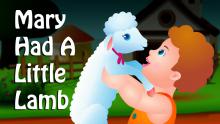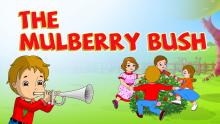
"Billy Boy" is a traditional folk song and nursery rhyme found in the United States. It has a Roud Folk Song Index number of 326. It is a variant of the traditional English folk song "My Boy Billy", collected by Ralph Vaughan Williams and published by him in 1912 as number 232 in Novello's School Songs. The song is very popular with the Orange Order.
"Billy Boy" Lyrics
One variant of the lyrics goes:
Oh, where have you been,
Billy Boy, Billy Boy?
Oh, where have you been,
Charming Billy?
I have been to seek a wife,
She's the joy of my life,
She's a young thing
And cannot leave her mother.
Did she bid you to come in,
Billy Boy, Billy Boy?
Did she bid you to come in,
Charming Billy?
Yes, she bade me to come in,
There's a dimple in her chin.
She's a young thing
And cannot leave her mother.
Can she make a cherry pie,
Billy Boy, Billy Boy?
Can she make a cherry pie,
Charming Billy?
She can make a cherry pie,
Quick as a cat can wink an eye,
She's a young thing
And cannot leave her mother.
Did she set for you a chair,
Billy Boy, Billy Boy?
Did she set for you a chair,
Charming Billy?
Yes, she sat for me a chair.
She has ringlets in her hair.
She's a young thing
And cannot leave her mother.
How old is she now,
Billy Boy, Billy Boy?
How old is she now,
Charming Billy?
Three times six and four times seven,
Twenty-eight and eleven,
She's a young thing
And cannot leave her mother.
"Billy Boy" Chords
In C:
C
Oh, where have you been,
Billy Boy, Billy Boy?
Oh, where have you been,
G7
Charming Billy?
I have been to seek a wife,
C
She's the joy of my life,
F C
She's a young thing
G7 C
And cannot leave her mother.
In G:
G Oh, where have you been, Billy Boy, Billy Boy? Oh, where have you been, D7 Charming Billy? I have been to seek a wife, G She's the joy of my life, C G She's a young thing D7 G And cannot leave her mother.
"Billy Boy" Origins
While the tone of the nursery rhyme is ironic and teasing, both the question and answer form and the narrative of the song have been related to "Lord Randall", a murder ballad from the British Isles, in which the suitor is poisoned by the woman he visits.
By contrast, Robin Fox uses the song to make a point about cooking and courtship, and observes that:
Feeding has always been closely linked with courtship […] With humans this works two ways since we are the only animals who cook: the bride is usually appraised for her cooking ability. (“Can she bake a cherry pie, Billy boy, Billy boy?”) In some cultures this is far more important than her virginity.
"Billy Boy" Youtube Videos



